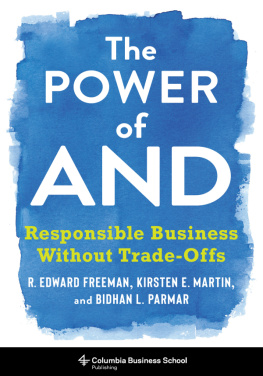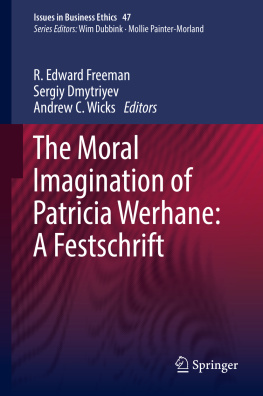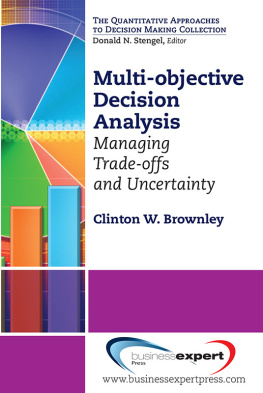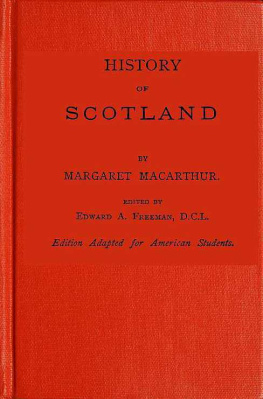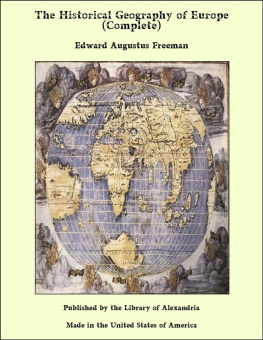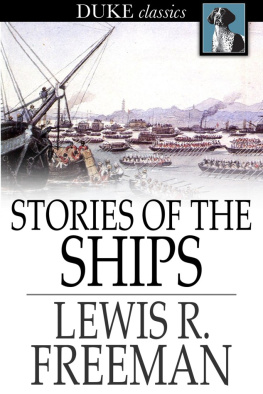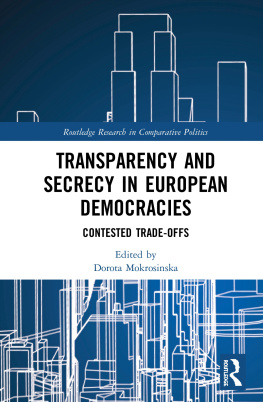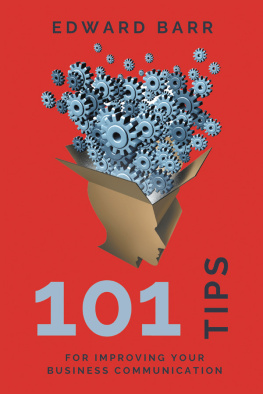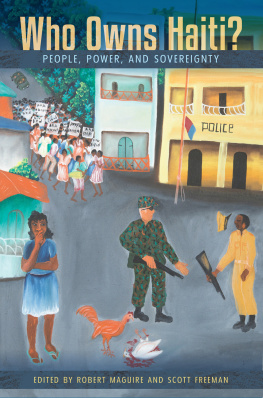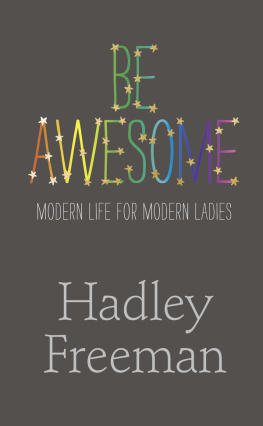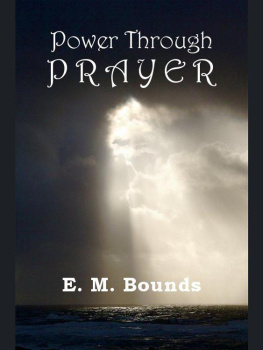Table of Contents
THE POWER OF AND
THE POWER OF AND
Responsible Business Without Trade-Offs
R. EDWARD FREEMAN,
KIRSTEN E. MARTIN, AND
BIDHAN L. PARMAR
Columbia University Press
New York
Columbia University Press
Publishers Since 1893
New York Chichester, West Sussex
cup.columbia.edu
Copyright 2020 Columbia University Press
All rights reserved
E-ISBN 978-0-231-54789-5
Library of Congress Cataloging-in-Publication Data
Names: Freeman, R. Edward, 1951 author.
Title: The power of and : responsible business without trade-offs / R. Edward Freeman, Kirsten E. Martin, and Bidhan L. Parmar.
Description: New York : Columbia University Press, [2020] | Includes index.
Identifiers: LCCN 2019051351 (print) | LCCN 2019051352 (ebook) | ISBN 9780231188500 (cloth) | ISBN 9780231547895 (ebook)
Subjects: LCSH: Social responsibility of business. | IndustriesSocial aspects. | EntrepreneurshipSocial aspects.
Classification: LCC HD60 .F722 2020 (print) | LCC HD60 (ebook) | DDC 658.4/08dc23
LC record available at https://lccn.loc.gov/2019051351
LC ebook record available at https://lccn.loc.gov/2019051352
A Columbia University Press E-book.
CUP would be pleased to hear about your reading experience with this e-book at .
Cover design: Noah Arlow
Cover image: Getty Images
To John Mackey, Kip Tindell, Tom and Dave Gardner, Jeff Cherry, and all the other CEOs and executives who are creating the new story of business with their companies.
CONTENTS
WE WISH to thank the following publishers and coauthors for granting us permission to rework some of the ideas contained in:
(1) The Social Responsibility of Business Is to Create Value for Stakeholders. With H. Elms MIT Sloan Management Review, 2018; (2) The New Story of Business: Towards a More Responsible Capitalism, Business and Society Review, 2017, 122:3, 449465; (3) Managing for Stakeholders, with J. Harrison and A. Wicks (New Haven, CT: Yale University Press, 2007); and, (4) Bridging the Values Gap, with Ellen Auster (Oakland, CA: Berrett-Koehler, 2015).
In addition, we have benefited from critiques by students and colleagues from seminars at Bentley College, Bucknell University, University of Pittsburgh, Tampere University, The Wharton School, Baruch College, Nottingham Trent University, HEC, Leuphana University, and numerous corporations and groups of executives from around the world.
We have also benefited greatly from a number of colleagues at universities around the world who have been working on the ideas in this book for many years. While there are so many working on new story ideas, we want to especially mention Professors Ellen Auster and Robert Phillips (York University); Doug Bosse and Jeffrey Harrison (University of Richmond); Norman Bowie (University of Minnesota); Michel Dion (Sherbrooke University); Thomas Donaldson and Witold Henisz (Wharton, University of Pennsylvania); Elisabet Garriga (EADA); Jacob Hoerisch and Stefan Schalteger (Leuphana University); Johanna Kujala (Tampere University); Jeremy Moon and Metter Morsing (Copenhagen Business School); Mollie Painter (Nottingham Trent University); Sybille Sachs (HWZ); Raj Sisodia (Babson University); Rene Ten Bos (Radboud University); Bas Van der Linden (EDHEC); Chiara Vera (University of Torino); and many others.
Our colleagues and students at GWU and Darden have been a source of inspiration, particularly Greg Fairchild, Mary Margaret Frank, James Freeland, Yael Gruska-Cockayne, Elena Loutskina, Sankaran Venkataraman, Patricia Werhane, and Andrew Wicks.
Our debt to the Institute for Business in Society and the Olsson Center for Ethics at Darden is enormous. The tireless support from Executive Director Joey Burton and research and writing help from Sergiy Dmytriyev, Andrew Sell, Jenny Mead, and Karen Musselman have been instrumental in finishing the book.
Myles Thompson, Brian Smith, and the team at Columbia University Press have been a joy to work with.
We are especially grateful to our families, who have put up with us during this process.
Key Ideas
There is a growing conceptual revolution in how we think about business.
The old narrative that business is only about the money is incomplete and no longer useful.
There are many new, expansive models built on the five key ideas of (1) purpose; (2) stakeholder value; (3) business as a societal institution; (4) the complexity of people; and (5) the necessity to put business and ethics together.
The Salesforce Story
Overall Argument
Salesforce may seem like an outlier or an example thats too good to be true. But the basic ideas behind the Salesforce model are being replicated across the business landscape. From recent startups to long-standing companies, we are witnessing nothing less than a revolution in the way that we understand business. And according to Benioff, more and more business leaders are realizing that business can and indeed should seek to improve the state of the world.
It is not that the traditional story is wrong. Profits are important. Shareholders need to be satisfied. Markets are vital to business success. People can be self-interested. And sometimes it is difficult to reconcile business with ethics. However, when taken together, these assumptions make it difficult to improve business practice.
During one hundred years of debate to counter the anemic view that business is just about the money, many businesses have proposed a variety of alternative ideas, like corporate social responsibility, sustainability, creating value for stakeholders, and corporate stewardship. And this debate has been carried out around the world. Indeed, there are very different systems of business that reflect different ideas about the central concepts and principles of business. In Germany, there is a system of joint governance between management and labor. In China, ownership by the state is widespread. In India, corporate social responsibility is a requirement. And in some Scandinavian countries, the idea of creating value for stakeholders is central.
We believe that almost all of these new, expansive business models revolve around five key ideas that need to be added to the traditional story of business: (1) the importance of purpose, values, and ethics, as well as profits; (2) the centrality of creating value for stakeholders, as well as shareholders; (3) seeing business as embedded both in societal institutions and in markets; (4) recognizing the full humanity of people, as well as their economic interests; and (5) integrating business and ethics into more holistic business models. When these ideas are combined, what emerges is a new story about the very nature of business, as well as a conception that is more aptly named responsible business.
The plan of this book is as follows. In the remainder of this chapter, we will say more about why these new models have emerged and explore some of them in more detail. We will then explicate the five key ideas. In summarizes our argument and suggests some questions that companies can engage to begin to implement the new story of business.
The Forces That Are Bringing About the New Story of Business




